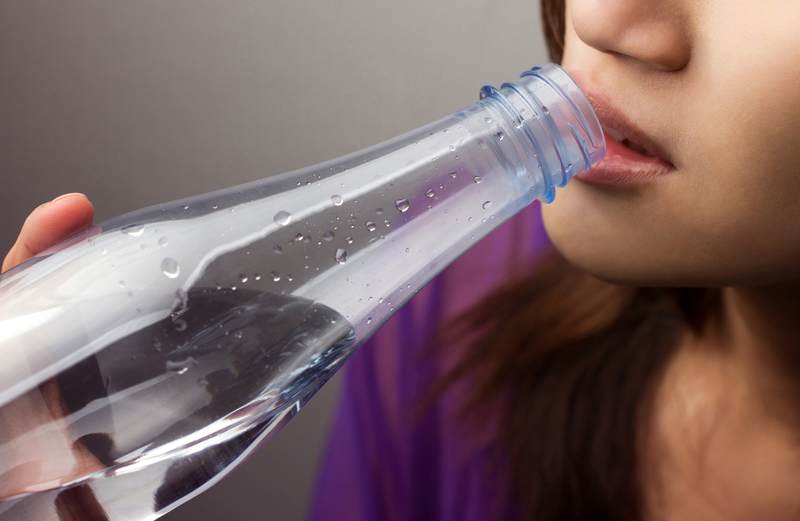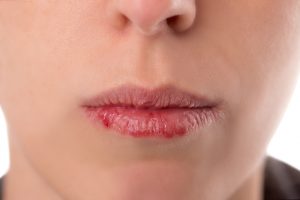Dealing With Dry Mouth
What To Expect With Child Orthodontics
June 20, 2019Avoiding Tooth Decay During Independence Day
July 3, 2019
Some dental patients struggle with dry mouth, or the uncomfortable feeling of not having enough saliva to keep your mouth moist. While it is normal for everyone to have dry mouth at some point, like when you’re stressed or nervous, it should not be occurring on a regular or consistent basis. There are a variety of treatment methods to help you overcome your dry mouth, such as drinking more water, changing the medications you may be taking or using a humidifier at night. Learn how dry mouth is caused and other options you have to treat it with these tips!
The Role of Saliva in Oral Health
Our mouths affect our oral health and play an important role in our everyday lives; we chew and swallow with them, and they’re our main form of communication. What many people don’t realize, however, is the role that saliva plays in helping us perform everyday functions, like eating and speaking. Our mouths are covered with hundreds of microscopic salivary glands that release and retain fluid in our mouths; the average person will produce 600 milliliters of saliva every day! Other than water, saliva is made up of proteins, enzymes, electrolytes and mucin, which all help keep our mouths clean and make it easier to eat and speak. Saliva also defends our teeth against cavities, washes away food, keeps our teeth strong and helps us swallow and taste food. Unfortunately, there are many people who suffer from the lack of saliva production in their mouths, which leads to dry mouth. Not everyone will experience dry mouth, but it’s important to know what it is, how it works and how you can avoid it.
Saliva and Xerostomia 
Dry mouth, or xerostomia, occurs when the salivary glands in our mouths don’t produce enough saliva to keep them wet and moist. Depending on the severity, dry mouth can be merely a nuisance or it can lead to serious health conditions that can damage your teeth and gums. Severe dry mouth can even change our appetites and affect how we taste food, which can make eating quite miserable. The lack of saliva in the mouth has more symptoms other than dry mouth, though. Many patients report bad breath, sticky saliva, a sore throat, difficulty wearing dentures, trouble speaking, burning sensations and dry nasal passages.
Patients with xerostomia can experience a variety of health consequences. Some report mouth sores, thrush (yeast infection of the mouth), cracked lips, and increased tooth decay and gum disease. While the symptoms of dry mouth depends on the individual, dry mouth is a relatively easy condition to fix, if the causes can be correctly identified.
Causes of Dry Mouth
Xerostomia occurs when the salivary glands stop functioning properly. These glands can halt their saliva production based on the age of the individual, medications that are being taken, cancer treatments, nerve damage and other health conditions, like Alzheimer’s. One of the most common side effects of medicines like antihistamines, diuretics, painkillers and decongestants, is dry mouth, but can be easily remedied by switching medications. Chemotherapy drugs and radiation treatments can damage the salivary glands and change the amount of saliva that is produced, which is usually temporary but can be permanent. Autoimmune diseases, such as Sjogren’s syndrome or HIV/AIDS, can lead to dry mouth but so can tobacco and alcohol consumption. Since there are multiple causes of dry mouth, it’s important to meet with a medical professional who can go over your health history with you and properly identify what is causing your dry mouth.
Importance of Good Oral Hygiene Routines
While dry mouth isn’t always avoidable, there are some good oral health habits that every patient should include in their daily routine to give their mouth the best chance for fighting bacteria. Consistent brushing and flossing each day can counteract the tooth decay that occurs whenever someone has dry mouth. It can also battle the effects of bad breath that commonly follows xerostomia, plus it keeps your teeth clean and fresh. Cutting out sugary and caffeinated drinks, like soda, tea and coffee, can reduce your likelihood of dry mouth and avoid cavities. Drinking more water, especially during meals, can keep your mouth moist and help saliva to cleanse your mouth. Chewing sugarless gum is another good option to stimulate saliva flow in the mouth or you can suck on sugarless hard candy which does the same thing. Your doctor can even prescribe mouthwashes that help fight dry mouth, which can be a great alternative if other options aren’t working for you.
If you or your child is struggling with dry mouth, call Hardy Pediatric Dentistry & Orthodontics at (720) 887-6003. Our team is experienced with helping patients improve their dry mouth and get their oral health back. Call today to schedule a consultation!